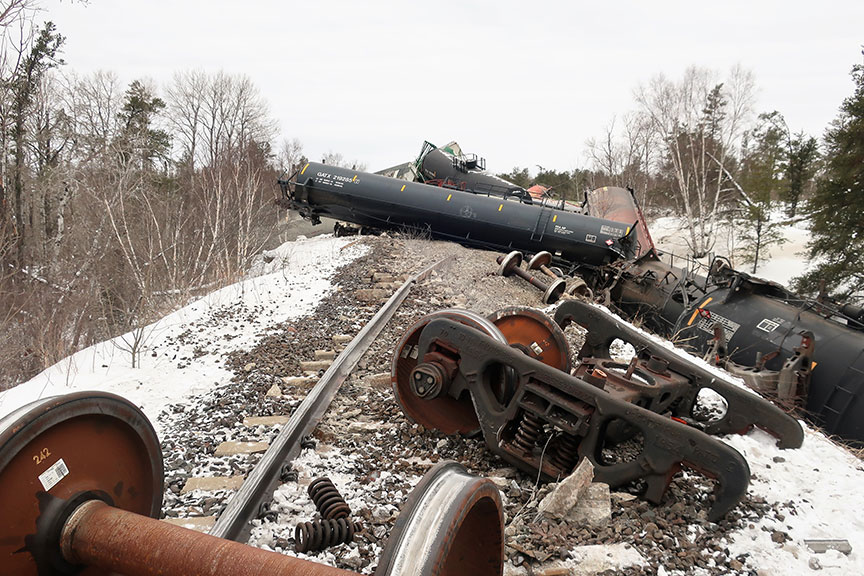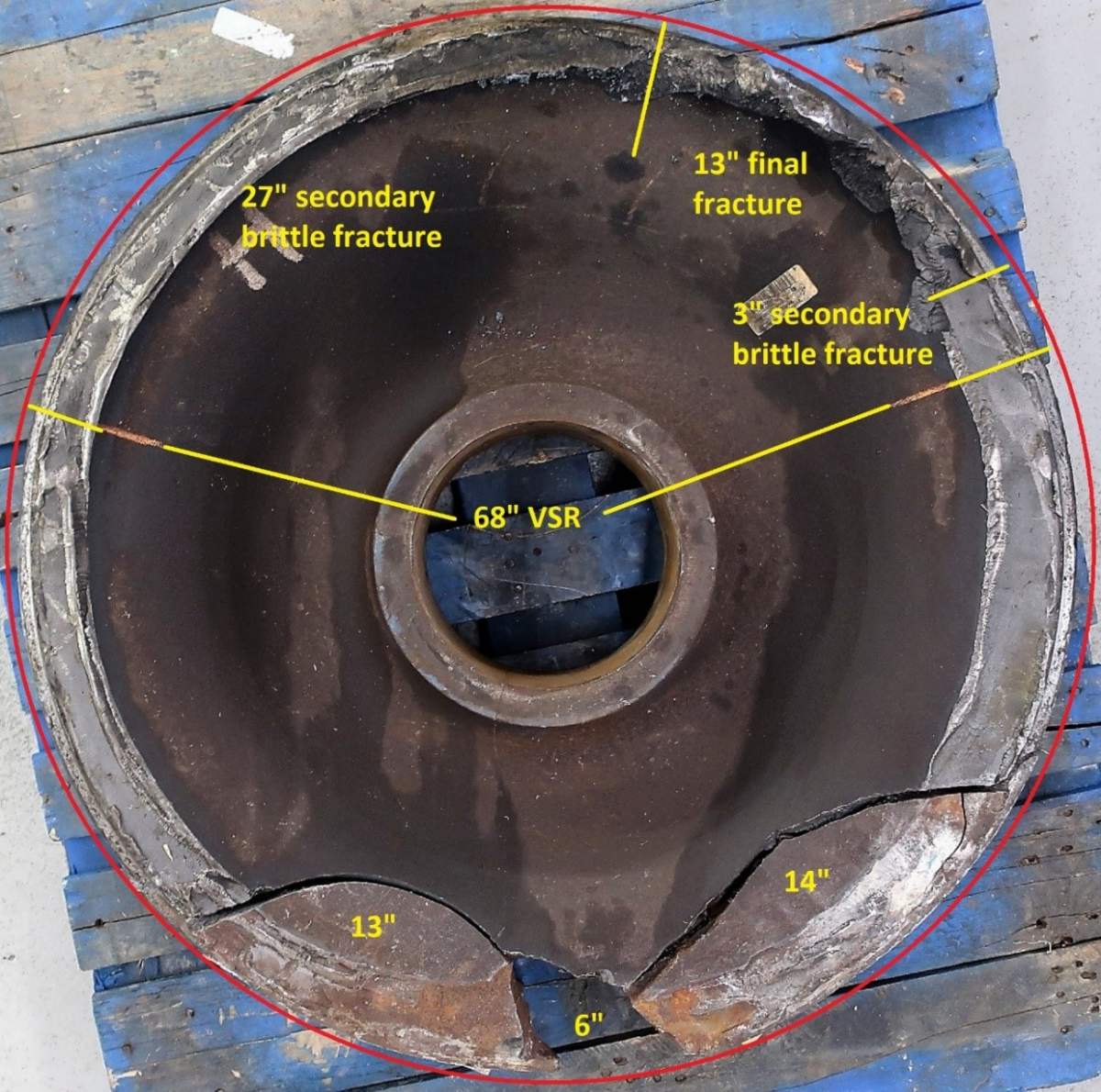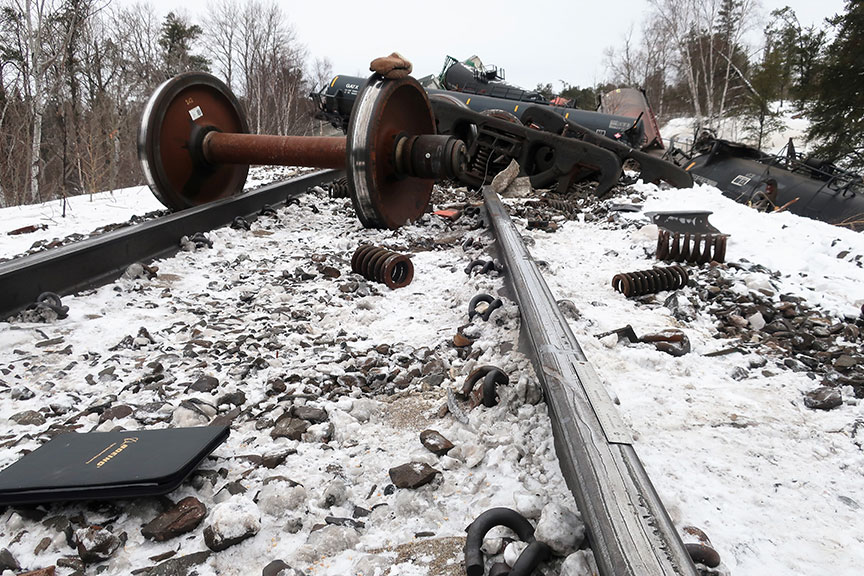An investigation by the Transportation Safety Board of Canada has revealed an unnoticed wheel fracture led to a 23-car train derailment near Rennie, Man. in January 2018.

Although eight cars were carrying dangerous goods at the time, no product was released and there were no injuries.
The investigation concluded there are two risk factors which could potentially lead to future wheel failures or derailments.
The first is the need to proactively detect sub-surface cracks, especially after a wheel has experienced high impact.
The second notes additional testing is required following wheel re-profiling, or certain defects may go unnoticed.
Rob Johnston, manager for Head Office and Western Regional Operations Division, helped lead the investigation. He said these types of defects are quite difficult to find.
“So when there’s no defect on the wheel tread, they aren’t always able to detect these types of wheel defects.”
The report said the same wheel which failed had experienced five impacts, exceeding criteria set by the Association of American Railroads, but CN’s own guidelines allowed the car to continue to the next inspection station.

Get breaking National news
It failed about four-and-a-half hours after the fifth impact.
“A high impact is 90 KIPS, which is 90,000 pounds,” Johnston said. “Most railways have their own thresholds to deal with that for various technical reasons.”
However Johnston says there is no regulatory requirement to remove a wheel set for a wheel impact of any kind.
“Wheel failures aren’t all that frequent considering the volume of traffic and the number of wheels in service.”
The TSBC said CN removes 60,000 wheel sets each year on average, yet some continue to fail during service.
However, it noted research into several technologies to detect sub-surface cracks is ongoing.















Comments
Want to discuss? Please read our Commenting Policy first.